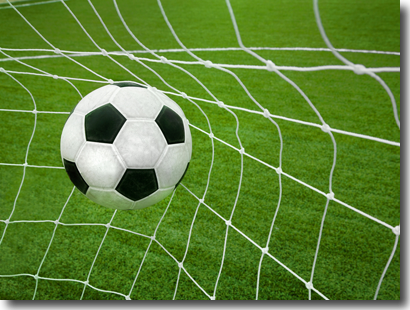
Columnist Ann Coulter created quite a stir when she recently wrote:
Individual achievement is not a big factor in soccer. In a real sport, players fumble passes, throw bricks and drop fly balls — all in front of a crowd. When baseball players strike out, they’re standing alone at the plate. But there’s also individual glory in home runs, touchdowns and slam-dunks.
In soccer, the blame is dispersed and almost no one scores anyway. There are no heroes, no losers, no accountability, and no child’s fragile self-esteem is bruised.
Is she right? I don’t know enough about either soccer or football to register a strong opinion, at least insofar as we examine the technical details of sports. But philosophically and psychologically, I think she’s on to something.
The dominant attitude today is fear. As a psychotherapist working every day in the mental health field, I am here to tell you: Fear is everywhere, and it’s getting more prevalent all the time.
Depression, PTSD, Bipolar disorder, schizophrenia? They have got nothing on anxiety, in terms of prevalence. Anxiety is more than an individual problem; it’s everywhere in our culture, in our movies, our drama, our approach to science, our attitudes about business, our politics, our news shows … you name it.
People have been taught to be afraid of everything: Afraid of losing their health insurance (even post-Obamacare, which was guaranteed to fix that); afraid of global warming on a hot day, afraid of “climate change” on any day with unexpected weather; afraid of not being successful; afraid of gluten in their food; afraid of every conceivable side-effect of a medication, even if it only occurred one time in a hundred thousand; afraid of losing their job; afraid of being trapped in a job they hate; afraid of the government (even while voting to give it more power); afraid of the private sector; afraid of technological and industrial progress; afraid of not being liked by others; afraid of being too successful, and therefore not liked by others; afraid of being a loser; and afraid of being a winner, and therefore being seen as arrogant.
Given this cultural climate, it stands to reason that people — particularly parents, when selecting a sport for their children — would turn to an activity where there’s as little challenge or room for disappointment, or offending others, as possible. Soccer, as Coulter points out, is one of the few sports where both boys and girls can play together; and separating by gender (because of ability) is unthinkable at today’s politically charged government-run schools. Most parents seem to be afraid as parents — afraid of offending their children; afraid of hurting their feelings, thereby “ruining” their self-esteem (a term never defined); and, perhaps worst of all, being seen by other parents as bad or otherwise inferior or inadequate. Perhaps soccer is the least intrusive or offensive of sports they can find.
I’m sure soccer requires genuine ability just as any other sport or athletic endeavor does. But the issue Coulter seems to be raising is not whether soccer requires ability; it’s how the ability is cultivated and displayed. In soccer, there’s no equivalent of the home run, the touchdown or the slam dunk. While these things all occur in the context of group endeavors, in the end they are individual achievements. And maybe this is the thing many can no longer stand to admit liking or wanting, especially for their children.
Coulter writes: Baseball and basketball present a constant threat of personal disgrace. In hockey, there are three or four fights a game — and it’s not a stroll on beach to be on ice with a puck flying around at 100 miles per hour. After a football game, ambulances carry off the wounded. After a soccer game, every player gets a ribbon and a juice box.
Yes, she has a point.
Individualism is in decline, but sports which emphasize individual achievement — football, basketball, baseball — remain highly popular as spectator sports. Whether that holds true over another generation or two remains to be seen. Sports and athletics appear to be the last arena of objective achievement and excellence flourishing in society; something tells me that they’ll be the last to fall, if and when they ever do.
Sports are also a form of psychotherapy or, better yet, a way to be uplifted. When you see another achieve something, even if the achievement is primarily physical, it offers a sense of hope and inspiration that you live in a world where excellence, competence, individualism and objective standards are alive and well.
It’s still socially acceptable (and legal) to applaud the accomplishments of a great sports star or player. In sports, particularly the “big 3” American sports of basketball, baseball and football, there’s no hesitation in talking winners and losers; best players and worst.
There’s no obsession or legal sanction — yet — in sports for a “level playing field” of ability, where everyone’s a winner and differences are not discussed in polite company. In the egalitarian world our government, corporate culture and academic-media establishment are creating, everybody is the same — whether they are, or not. The greatest threat to this egalitarian attitude is anything that smacks of individualism.
Of course, individualism isn’t “fair” because not all individuals are created — or aspire to be — equal, not in ability or achievement. So what? The approach we’re replacing individualism with is unrealistic and boring. It’s dreary and gray, morally and psychologically.
The triumph of soccer as the activity of choice for school-aged children is probably no accident.
Be sure to “friend” Dr. Hurd on Facebook. Search under “Michael Hurd” (Rehoboth Beach DE). Get up-to-the-minute postings, recommended articles and links, and engage in back-and-forth discussion with Dr. Hurd on topics of interest.
